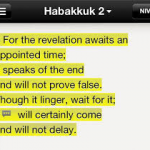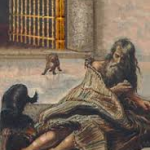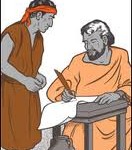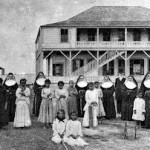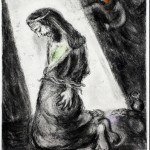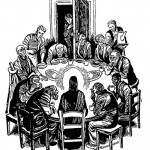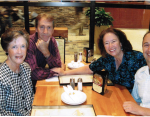Twenty-Seventh in Ordinary Time – Cycle C
Reflecting on Habakkuk 1: 2-3; 2: 2-4
Do things ever really get better if we just wait, and trust God? That’s the promise of the reading from Habakkuk today. In fact, the prophet wants us to have these words of comfort so much that he demands that the vision be written down on tablets in such large print that a courier can run with it and people can read it as he passes.
As I write this, the world is waiting to see if Syria actually turns over its arsenal of chemical weapons, some of which were used to kill a thousand people. But of course Assad has already killed one hundred thousand people with the conventional weapons of shelling, gunfire, and torture. Some of the victims of these atrocities cry out to the world, “We cry for help and you do not listen! We cry out to you, ‘Violence!’, but you do not intervene.” Others plead for the world to broker peace for them without firing another shot.
A few weeks ago the worldwide Church kept vigil for peace in Syria, and the fruits of that prayer were immediate. John Kerry made a “gaffe from God”, and enemies began to speak to one another.
If the vision delays, wait for it. We wait, and never stop praying that Syria, the very cradle of Christianity, may once again be Ground Zero for the dramatic power of God. St. Paul was born there. St. Matthew and St. Luke both wrote their gospels there. Paul’s missionary journeys embarked from there. We were first called “Christians” there. Pray for peace in Syria.
The vision still has its time, and will not disappoint.
Is there someone you pray for all the time?

